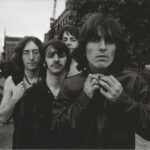Cross Canadian Ragweed, the Oklahoma-bred architects of the Red Dirt sound, recently ignited a wave of excitement among fans with the announcement of their 2025 reunion stadium concert. The overwhelming demand for the April 12th show at Boone Pickens Stadium in Stillwater, Oklahoma, led to a second concert being added on April 11th, proving the enduring legacy of this beloved band. For those just discovering the Ragweed phenomenon, it begs the question: what makes them so special? Josh Crutchmer, an expert on the Red Dirt genre and author of books like the forthcoming Red Dirt Unplugged, has curated a list of essential Cross Canadian Ragweed Songs that showcase their dynamic range, from high-energy rock anthems to soul-stirring country ballads.
‘Alabama’ (2001)
In the late 1990s, a spontaneous road trip from Stillwater to Nashville took an unexpected turn for Cody Canada and his friends. Intending to see James Brown, they found themselves captivated by a bar in Music City. As Canada recounted in Red Dirt, the allure of cheap drinks and good times superseded their original plan. The group then impulsively drove to Panama City, Florida, only to realize their funds had depleted. Amidst the rising tension in the car, Canada began to pen the lyrics that would evolve into “Alabama.” This song became an anthem for Ragweed fans, who passionately sang back the iconic refrain “They talked about Savannah (and) Sweet Home Alabama” at every show throughout the band’s career.
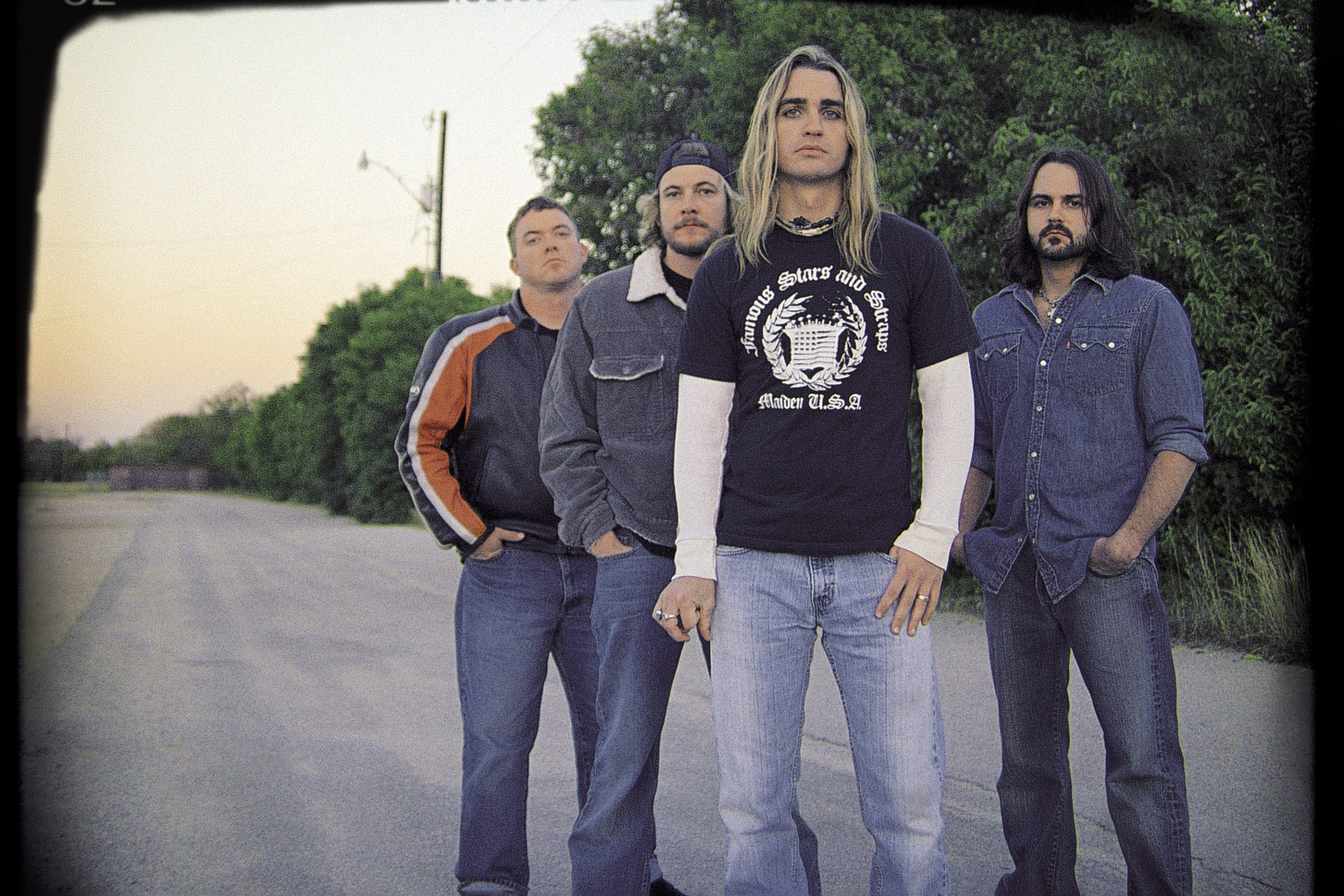 Cross Canadian Ragweed portrait, showcasing Cody Canada, Jeremy Plato, Randy Ragsdale, and Grady Cross, early in their career.
Cross Canadian Ragweed portrait, showcasing Cody Canada, Jeremy Plato, Randy Ragsdale, and Grady Cross, early in their career.
’17’ (2002)
Leaving the college town atmosphere of Stillwater behind in 2001, Cody Canada returned to his hometown of Yukon, Oklahoma. One evening, he and Jeremy Plato invited Jason Boland of Jason Boland & the Stragglers over for a casual night. A beer run ensued, and while driving cautiously under the speed limit, paranoia crept in. It was during this tense drive that Boland’s observation, “Isn’t it funny how you’re always 17 in your hometown?” sparked an idea. Canada immediately recognized the lyrical potential, declaring, “If you don’t write it, I will.” “17” became Cross Canadian Ragweed’s debut single with Universal South in 2002. A highlight of their Live and Loud at Cain’s Ballroom album from 2006, Canada famously introduced the song with a simple “Sing it,” letting the audience take over a part of the first verse, illustrating the song’s deep connection with their fanbase.
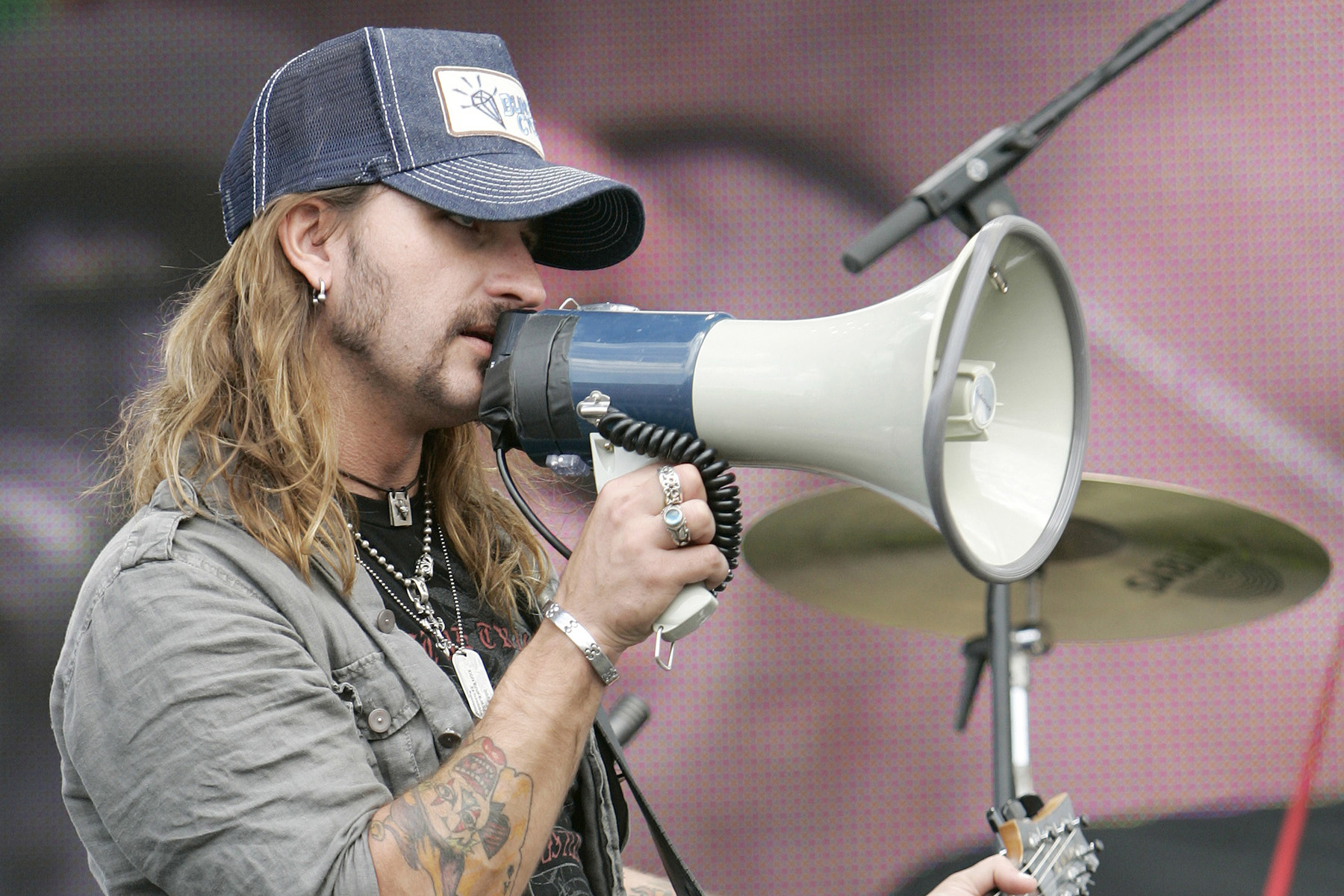 Cody Canada performing live with Cross Canadian Ragweed, highlighting his energetic stage presence and connection with the audience.
Cody Canada performing live with Cross Canadian Ragweed, highlighting his energetic stage presence and connection with the audience.
‘Sick and Tired’ (2004)
In 2003, Cross Canadian Ragweed experienced a significant moment, opening for Lee Ann Womack in front of 50,000 people at RodeoHouston’s new venue, Reliant Stadium. Backstage, a somewhat intimidated Cody Canada approached Womack and proposed a collaboration. Suggesting Willie Nelson’s “Angel Flying too Close to the Ground,” Womack’s enthusiastic response, “That’s my favorite!” marked the beginning of a friendship. Following this show, Canada asked Womack to lend her harmonies to a ballad he had written, “Sick and Tired.” Despite not having heard the song, Womack agreed, stating, “I don’t know you guys very well, but I’m pretty sure you’re not going to record something I don’t like.” “Sick and Tired” became the lead single from Ragweed’s Soul Gravy album, showcasing a blend of Red Dirt grit and Nashville polish.
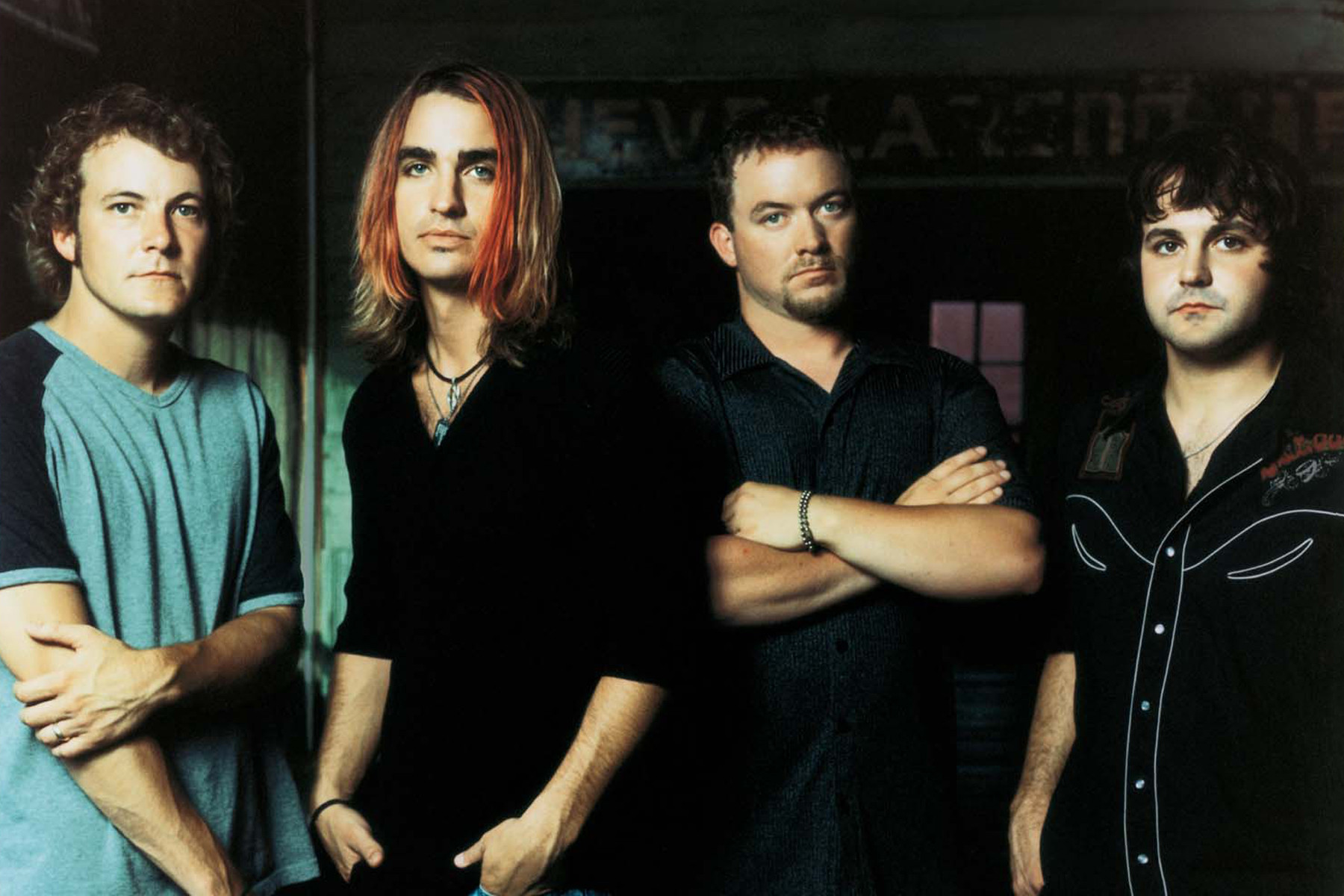 Album cover of Cross Canadian Ragweed's "Soul Gravy", featuring the band's name and album title, representative of their 2004 sound.
Album cover of Cross Canadian Ragweed's "Soul Gravy", featuring the band's name and album title, representative of their 2004 sound.
‘Flowers’ (2004)
“Flowers” is a deeply personal song penned by Cody Canada for his wife, Shannon, who also served as Cross Canadian Ragweed’s manager throughout their journey. The inspiration struck during an argument about Christmas decorations shortly after they were married. This domestic disagreement blossomed into one of the many heartfelt ballads in the Ragweed repertoire. Often performed solo and acoustic by Canada, “Flowers” provided a softer interlude in their typically high-energy concerts. This tradition continues with his current band, The Departed, keeping the song alive for fans old and new.
 Cross Canadian Ragweed performing at Wakarusa Music and Camping Festival, capturing their live energy and connection with fans.
Cross Canadian Ragweed performing at Wakarusa Music and Camping Festival, capturing their live energy and connection with fans.
‘Constantly’ (2002)
Much of Cody Canada’s early songwriting, and consequently Cross Canadian Ragweed’s early music, revolved around his relationship with his wife. “Constantly” exemplifies this, originally written as a love ballad but performed with a rock edge. The chorus, with its raw and honest lines, “Baby, I’m nothing without you. Lady, you’re nothing without me. We got it constantly,” resonates with the intense emotions of love and dependence. This song highlights the band’s ability to transform personal sentiments into powerful rock anthems.
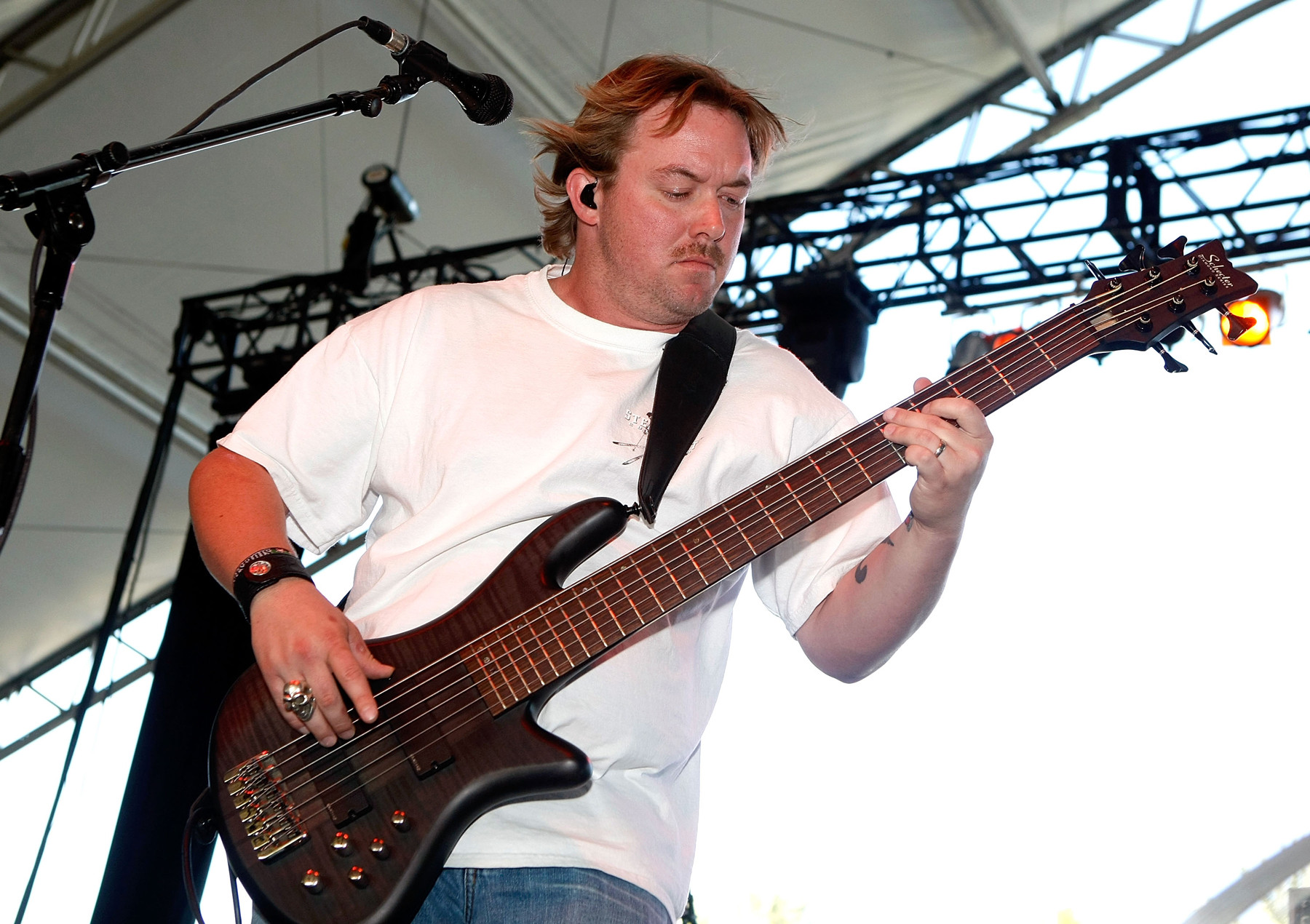 Jeremy Plato of Cross Canadian Ragweed playing bass at Stagecoach Festival, showcasing his role in the band's rhythm section.
Jeremy Plato of Cross Canadian Ragweed playing bass at Stagecoach Festival, showcasing his role in the band's rhythm section.
‘Fightin’ For’ (2005)
While Soul Gravy is often hailed as Cross Canadian Ragweed’s breakthrough album, Garage, its successor, arguably captured the band at their creative zenith. “Fightin’ For,” the lead single from Garage, became their most commercially successful song, reaching Number 39 on Billboard’s country charts. Born from the frustration of unresolved conflict, the defiant chorus, “You may have won this battle baby, but it don’t mean I won’t win the war,” showcases Canada’s songwriting at its most assertive. Co-written with Mike McClure of The Great Divide, who also produced Ragweed’s major-label albums, “Fightin’ For” is a testament to their collaborative spirit and musical synergy.
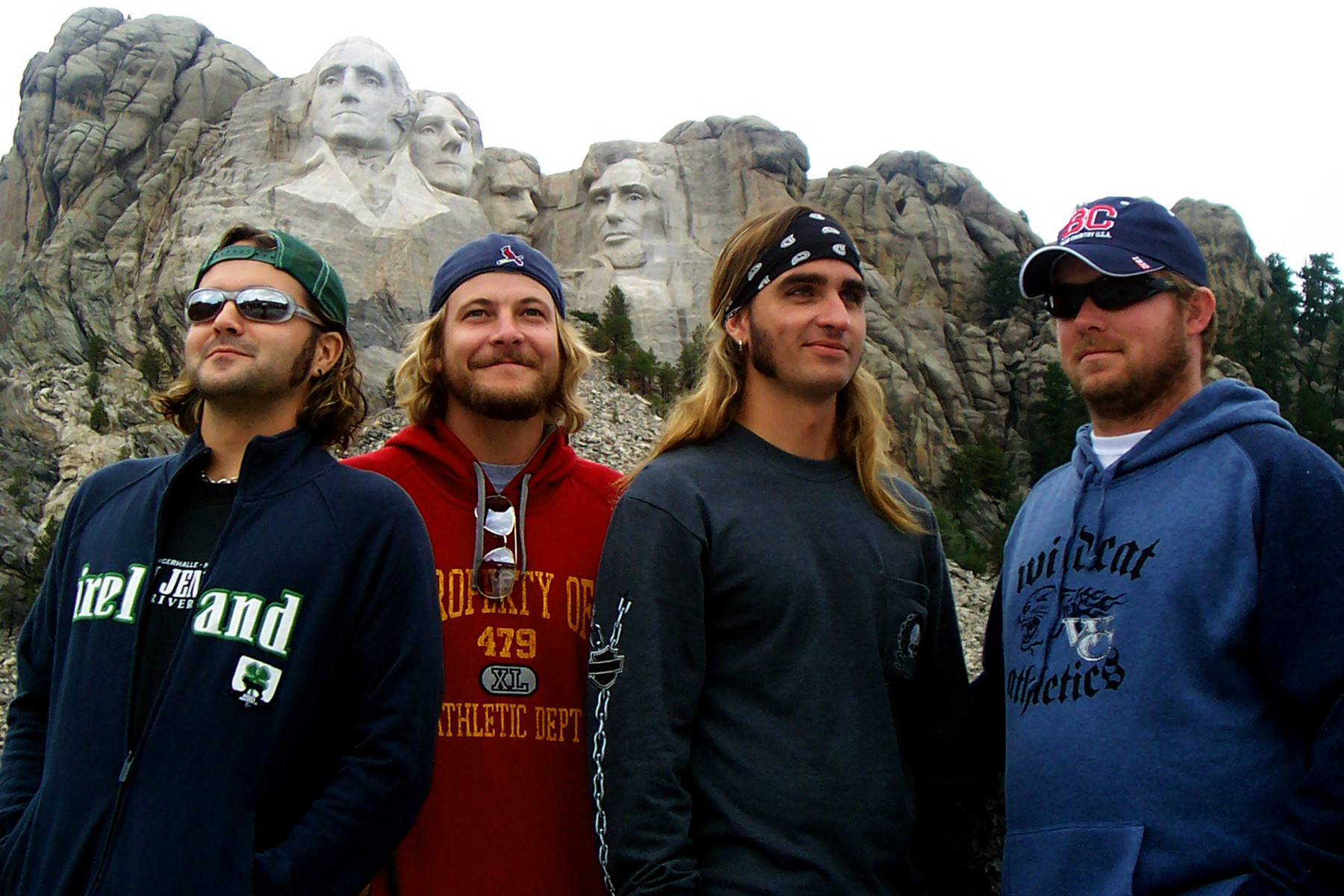 Cross Canadian Ragweed performing on stage, bathed in stage lights, symbolizing their peak performance era during the Garage album.
Cross Canadian Ragweed performing on stage, bathed in stage lights, symbolizing their peak performance era during the Garage album.
‘Don’t Need You’ (2002)
A key element of Cross Canadian Ragweed’s appeal was their unwavering authenticity, even after signing with major label Universal South. Including “Don’t Need You” on their label debut was a deliberate statement. The lyrics, open to interpretation as either a rejection of mainstream radio pressures or a scorned lover’s declaration, resonated deeply with fans during Ragweed’s ascent. The song’s powerful refrain, “I don’t need you criticizing me, I don’t need you walkin’ all over me,” ignited crowds, culminating in Canada’s impassioned delivery of the final line, “And I don’t need you.”
 Cody Canada performing live with Cross Canadian Ragweed, highlighting his energetic stage presence and connection with the audience.
Cody Canada performing live with Cross Canadian Ragweed, highlighting his energetic stage presence and connection with the audience.
‘Dimebag’ (2005)
During the production of Garage, Cody Canada and Mike McClure of The Great Divide were discussing the 2004 passing of Pantera guitarist “Dimebag” Darrell Abbott. Canada recounted hearing the news while in Las Vegas. He remarked to McClure, “If something awesome had happened to Dimebag, we wouldn’t have heard about it. But he died, so we did.” McClure responded with, “Bad news travels a little quicker.” Canada corrected him, saying, “Bad news travels faster than any good news that you hear,” and this became the poignant chorus of “Dimebag.” A tribute to Abbott and Kurt Cobain, “Dimebag” quickly became a staple in The Departed’s setlists after Cross Canadian Ragweed disbanded, honoring the legacy of these influential musicians.
 Jeremy Plato of Cross Canadian Ragweed playing bass at Stagecoach Festival, showcasing his role in the band's rhythm section.
Jeremy Plato of Cross Canadian Ragweed playing bass at Stagecoach Festival, showcasing his role in the band's rhythm section.
‘Carney Man’ (1998)
In the late 1990s, a wave of tropical-infused country songs gained popularity, influencing Red Dirt songwriters. Shortly after The Great Divide’s hit “Pour Me a Vacation,” Cody Canada visited Mike McClure with a partially written beach-themed song. Before Canada could finish a verse, McClure playfully altered the lyrics to be circus-themed, joking about clowns. Despite the humorous detour, they completed the song, and it became the title track of Cross Canadian Ragweed’s debut album and a signature live performance. While Canada occasionally grew weary of audience requests for “Carney Man,” he eventually embraced its role as a crowd-pleaser. Reflecting on playing “Carney Man” at the 2025 reunion shows, Canada anticipates, “It’s gonna be a rush.”
 Cody Canada performing with Cross Canadian Ragweed at The 40 Watt Club, showcasing his long-standing career and connection to intimate venues.
Cody Canada performing with Cross Canadian Ragweed at The 40 Watt Club, showcasing his long-standing career and connection to intimate venues.
‘Boys From Oklahoma’ (1999)
If “Carney Man” is the concert staple, then “Boys from Oklahoma” is the transcendent live experience. Covered by numerous Red Dirt bands of Ragweed’s era, this Gene Collier-penned song, famous for its opening line — “Them boys from Oklahoma roll their joints all wrong” — was first recorded live by Cross Canadian Ragweed. It appeared on both Live and Loud at the Wormy Dog Saloon and Live and Loud at Billy Bob’s Texas. Nightly, Ragweed transformed the song into a communal event, inviting opening acts, backstage guests, and even fans onstage to contribute verses. With their reunion concerts dubbed “The Boys from Oklahoma,” fans eagerly anticipate this song as the emotional peak of Cross Canadian Ragweed’s return.


